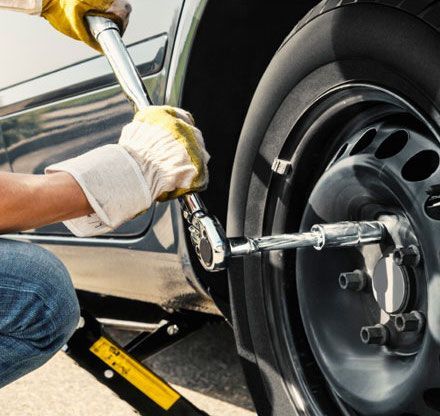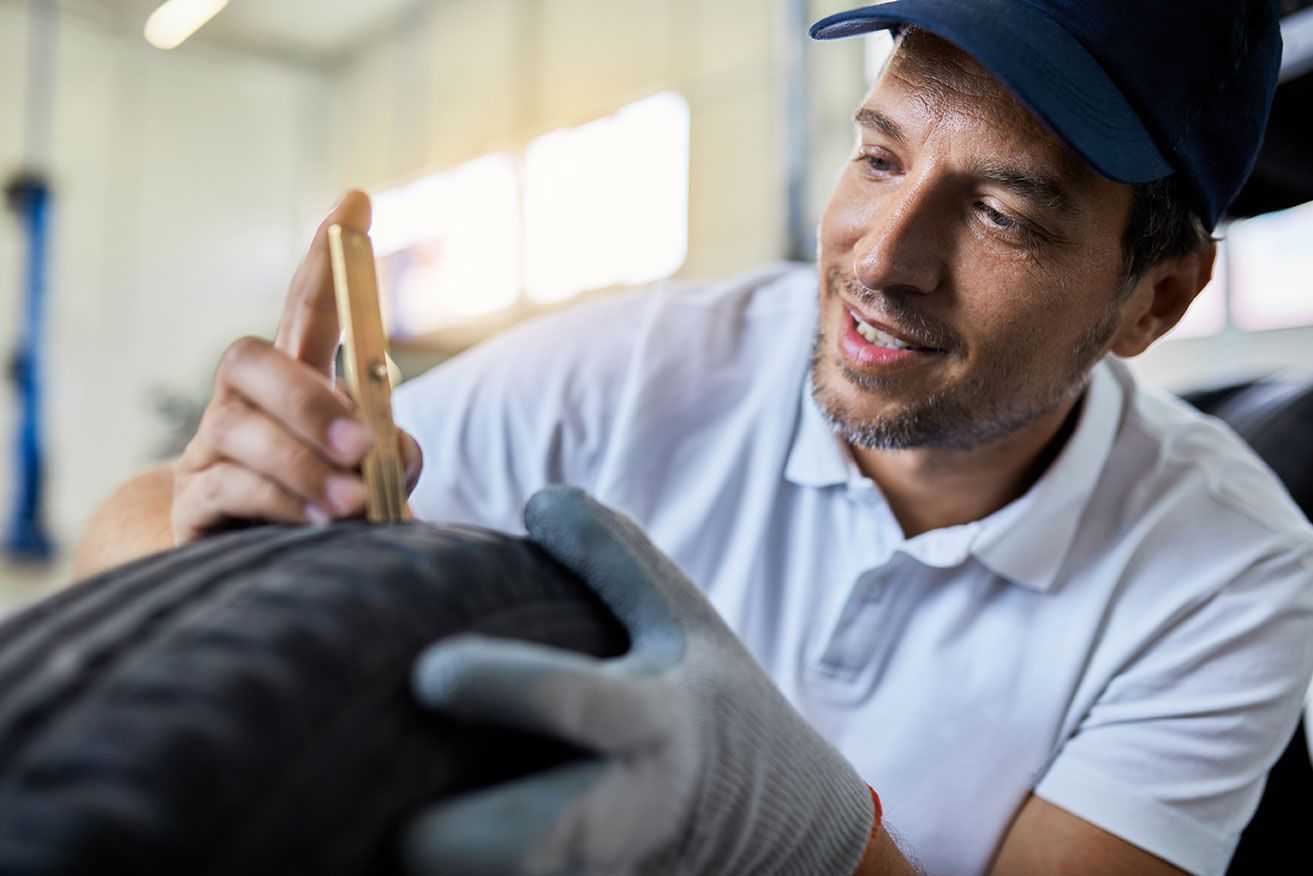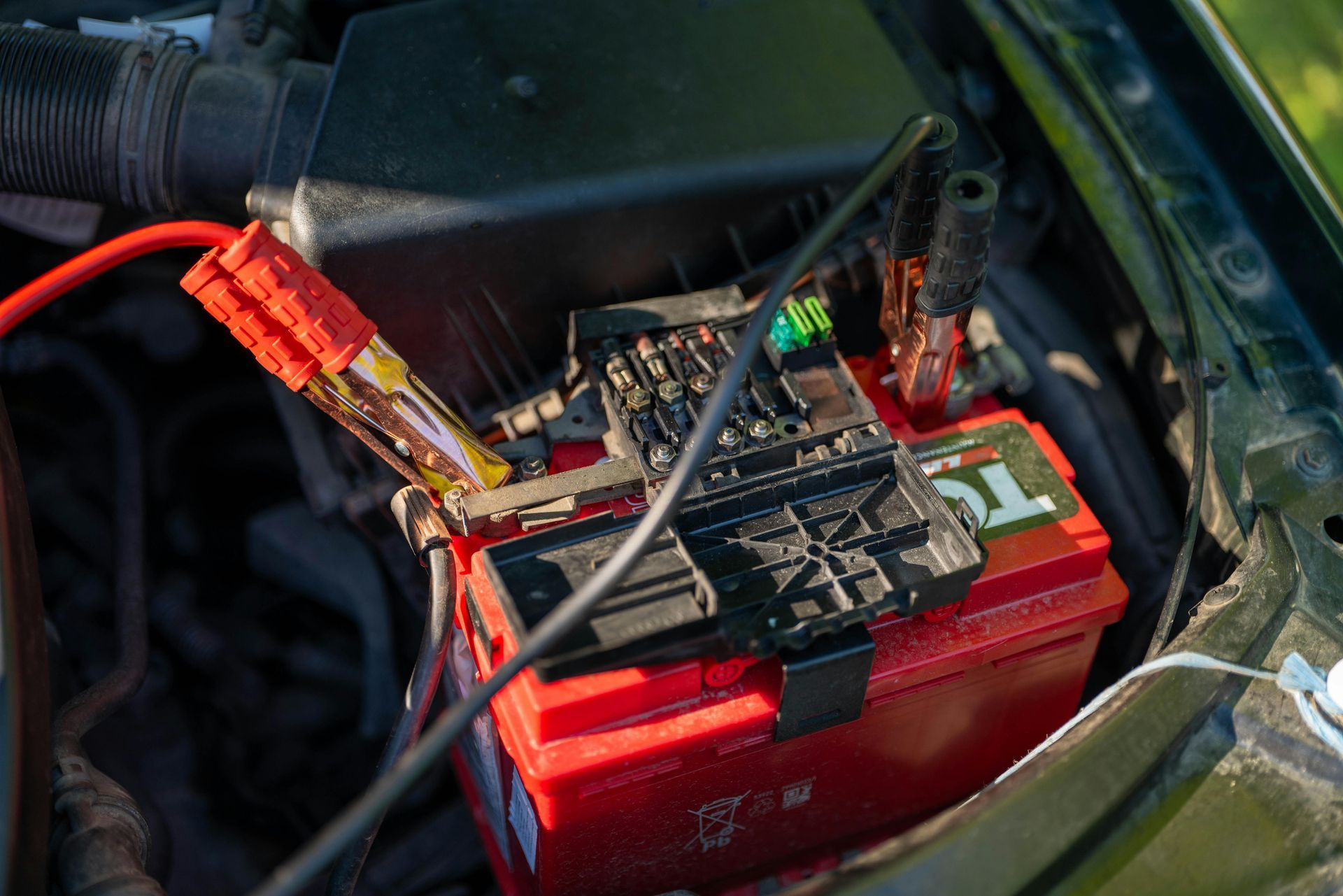How to Fix a Flat Tire? Flat Tire Causes and Solutions
Auto Shops Located in: Chapel Hill, Durham, Taleigh, Apex, and Cary North Carolina

What causes a flat tire? If you are experiencing a dreaded flat, it could be sourced by one of many possible culprits. The solution to your flat is dependant on the cause of this issue. Here is the Chapel Hill Tire guide to flat tires and how to fix them.
Problem 1: Nail, Screw, or Puncture Wound
How do nails end up in tires? This is a surprisingly common problem for drivers. Nails can get tossed aside during construction or fall out of open-ended pickup trucks. Because they are usually left lying flat on the ground, it might seem unlikely that they can pierce tires. If a car in front of you kicks up a nail, it can more easily get lodged in one of your tires. Similarly, your back tires are likely to catch a nail if it is kicked up by your front tires.
Additionally, you might notice most road debris ends up on the shoulders of the street. If your tire ends up getting close to the edge or pulling off to the side of the road, it can easily find the nails, screws, and other hazards that have been waywardly left behind. Not only are these hazards more common on the side of the road, but they often do not lay as flat as they would on the even street surface. This makes your car an easy victim to an unfortunate flat tire.
Solution: Patch Repair
The solution here is relatively quick and easy: tire patch repair. First, you must locate the puncture wound and determine that this is, in fact, the problem your tires are facing. Then, you must remove the nail, patch the tire, and refill your tires. The experts at Chapel Hill Tire complete this tire service for just $25, saving you the cost of a patch kit, the time and labor of the repair, and the chance that something might go wrong, damaging your tire further.
Problem 2: Low Tire Pressure
Low tire pressure can be caused by a flat tire, but it can also create flat tires that might otherwise be fine. Your tires need to be regularly refilled to work properly and maintain their structural integrity. If you go for extended periods of time without inflating your tires or you do not fix a punctured tire quickly, you risk causing a major flat. Driving with low tire pressure causes a wider range of your tire’s surface area to hit the ground. It also weakens your tires and can damage them internally, which will make you more vulnerable to flats as your sidewall is worn away.
Solution: Regular Tire Refills
Maintaining proper tire pressure is essential to preventing this kind of flat tire. An expert mechanic like those at Chapel Hill Tire will refill your tires to the right pressure levels every time you visit for an oil change or a tire rotation. If your flat has already been created, a tire expert will first try to repair the tire, but—depending on the level of damage done—it may need to be replaced.
Problem 3: Overinflation
Conversely, overinflation can also cause flat tires. Not only do overinflated tires impact your vehicle’s performance, but they can also create serious damage. Your tires will wear unevenly when overinflated and incur increased internal pressure. Depending on the severity of the overinflation, you can create a wide range of tire problems and flats. At its worst, overinflation can destroy your tire from the inside out. Much like a balloon, when you fill it past its limit, your tire becomes prone to pop.
Solution: Healthy Inflation Levels
In severe cases, an overinflated tire is likely to cause a major tire blowout. This type of flat tire cannot be repaired. However, if your tire was not severely damaged, a professional might be able to save it. This problem is easy to prevent. Use a gauge when refilling your tires and do not exceed the recommended pressure levels. Or, let the Chapel Hill Tire experts fill them for you.
Problem 4: Potholes
The infamous pothole is a primary culprit of flat tires. Severe road damage can easily cut into your tire health. They can quickly become punctured or worn, especially if you regularly hit those unavoidable potholes on your daily commute. In worst-case-scenarios, a pothole can damage your rim or throw off your tire balance. This will break the seal and release the air from your tires (in addition to significantly impacting your car’s performance).
Solution: Tire Rotations, Repairs, and Cautious Driving
Some tire problems simply cannot be avoided. Swerving around a pothole is not worth causing an accident. However, remaining cautious and missing potholes when they can safely be avoided can help you prevent a flat or serious tire damage.
You likely encounter the same rough patches and potholes on your daily commute. This repetition can wear out the same parts of your tires over and over again. Regular tire rotations can prevent this uneven wear and help your tires fight potholes for as long as possible. If your rim was bent by a pothole, this can be straightened by a tire professional. An expert can also balance or align your tires to repair any damage and prevent any further problems from occurring.
Problem 5: Worn Tires
When your tires become worn, even the slightest road turbulence can create a flat. Sometimes, no turbulence is needed to create a flat at all: your tire might just give out. Most tires last between 6-10 years. This depends largely on the type of tires you have, your area’s road conditions, your personal driving patterns, and your frequency of driving. Worn tires are an unfortunately common source of flats.
Solution: New Tires
Trying to fix worn tires is most likely not worth your time and money. New tires will stay inflated while keeping you safer on the road and improving your gas mileage. The tire experts at Chapel Hill Tire will help you find the best possible price on new tires in Raleigh, Durham, Chapel Hill, or Carrboro. We make this promise under our Price Beat Guarantee. We will beat out any competitor pricing by 10% of the price difference, ensuring you get the lowest tire prices possible. Use our Tire Finder here online or visit your nearest Chapel Hill Tire location for the tire service, repair, or replacement you need today!















